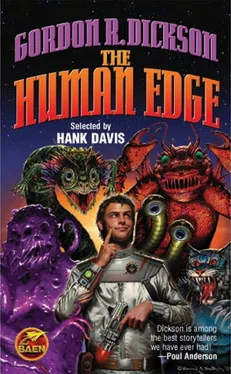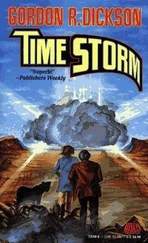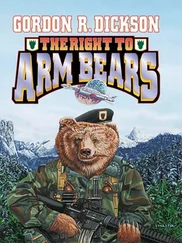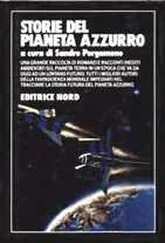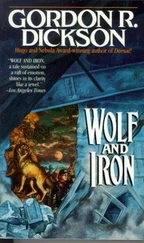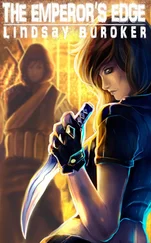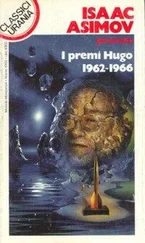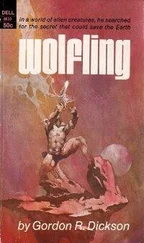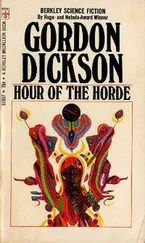“Fine. Come here, come here, gentlemen,” said Whin. “Take a look at this.”
The two medical officers came up to the fugitive, sitting in the chair. They maintained poker faces. One reached for a wrist of the fugitive and felt for a pulse. The other went around back and ran his fingers lightly over the upper back with its misshapen and misplaced shoulder sockets.
“Well?” demanded Whin, after a restless minute. “What about it? Is he a man, all right?”
The two medical officers looked up. Oddly, it was the junior in rank, the major, who answered.
“We’ll have to make tests—a good number of tests, sir,” he said.
“You’ve no idea—now?” Whin demanded.
“Now,” spoke up the lieutenant colonel, “he could be either Morah or human. The Morah are very, very, good at this sort of thing. The way those arms—We’ll need samples of his blood, skin, bone marrow—”
“All right. All right,” said Whin. “Take the time you need. But not one second more. We’re all on the spot here, gentlemen. Mack—” he turned to Stigh, “I’ve changed my mind. You stick with the doctors and stand by to keep me informed.”
He turned back to Dormu.
“We’d better be getting back upstairs, Mr. Ambassador,” he said.
“Yes,” answered Dormu, quietly.
* * *
They went out, paced down the corridor and entered the lift tube in silence.
“You know, of course, how this complicates things, Marshal,” said Dormu, finally, as they began to rise up the tube together. Whin started like a man woken out of deep thought.
“What? You don’t have to ask me that,” he said. His voice took on an edge. “I suppose you’d expect my men to just stand around and watch, when something like that came running out of a Morah ship?”
“ I might have,” said Dormu. “In their shoes.”
“Don’t doubt it.” Whin gave a single, small grunt of a laugh, without humor.
“I don’t think you follow me,” said Dormu. “I didn’t bring up the subject to assign blame. I was just leading into the fact the damage done is going to have to be repaired, at any cost; and I’m counting on your immediate—note the word, Marshal— immediate cooperation, if and when I call for it.”
The lift had carried them to the upper floor that was their destination. They got off together. Whin gave another humorless little grunt of laughter.
“You’re thinking of handing him back, then?” Whin said.
“Wouldn’t you?” asked Dormu.
“Not if he’s human. No,” said Whin. They walked on down a corridor and into a small room with another door. From beyond that other door came the faint smell of something like incense—it was, in fact, a neutral odor, tolerable to human and Morah alike and designed to hide the differing odors of one race from another. Also, from beyond the door, came the sound of three musical notes, steadily repeated; two notes exactly the same, and then a third, a half-note higher.
Tonk, tonk, TINK!…
“It’s establishing a solid position for confrontation with the Than that’s important right now,” said Dormu, as they approached the other door. “He’s got us over a barrel on the subject of this talk anyway, even without that business downstairs coming up. So it’s the confrontation that counts. Nothing else.”
They opened the door and went in.
* * *
Within was a rectangular, windowless room. Two tables had been set up. One for Dormu and Whin; and one for the Jhan, placed at right angles to the other table but not quite touching it. Both tables had been furnished and served with food; and the Jhan was already seated at his. To his right and left, each at about five feet of distance from him, flamed two purely symbolic torches in floor standards. Behind him stood three ordinary Morah—two servers, and a musician whose surgically-created, enormous forefinger tapped steadily at the bars of something like a small metal xylophone, hanging vertically on his chest.
The forefinger tapped in time to the three notes Whin and Dormu had heard in the room outside but without really touching the xylophone bars. The three notes actually sounded from a speaker overhead, broadcast throughout the station wherever the Jhan might be, along with the neutral perfume. They were a courtesy of the human hosts.
“Good to see you again, gentlemen,” said the Jhan, through the mechanical interpreter at his throat. “I was about to start without you.”
He sat, like the other Morah in the room, unclothed to the waist, below which he wore, though hidden now by the table, a simple kilt, or skirt, of dark red, feltlike cloth. The visible skin of his body, arms and face was a reddish brown in color, but there was only a limited amount of it to be seen. His upper chest, back, arms, neck and head—excluding his face—was covered by a mat of closely-trimmed, thick, gray hair, so noticeable in contrast to his hairless areas, that it looked more like a garment—a cowled half-jacket—than any natural growth upon him.
The face that looked out of the cowl-part was humanoid, but with wide jawbones, rounded chin and eyes set far apart over a flat nose. So that, although no one feature suggested it, his face as a whole had a faintly feline look.
* * *
“Our apologies,” said Dormu, leading the way forward. “The marshal just received an urgent message for me from Earth, in a new code. And only I had the key to it.”
“No need to apologize,” said the Jhan. “We’ve had our musician here to entertain us while we waited.”
Dormu and Whin sat down at the opposite ends of their table, facing each other and at right angles to the Jhan. The Jhan had already begun to eat. Whin stared deliberately at the foods on the Jhan’s table, to make it plain that he was not avoiding looking at them, and then turned back to his own plate. He picked up a roll and buttered it.
“Your young men are remarkable in their agility,” the Jhan said to Dormu. “We hope you will convey them our praise—”
They talked of the athletic show; and the meal progressed. As it was drawing to a close, the Jhan came around to the topic that had brought him to this meeting with Dormu.
“…It’s unfortunate we have to meet under such necessities,” he said.
“My own thought,” replied Dormu. “You must come to Earth some time on a simple vacation.”
“We would like to come to Earth—in peace,” said the Jhan.
“We would hope not to welcome you any other way,” said Dormu.
“No doubt,” said the Than. “That is why it puzzles me, that when you humans can have peace for the asking—by simply refraining from creating problems—you continue to cause incidents, to trouble us and threaten our sovereignty over our own territory of space.”
Dormu frowned.
“Incidents?” he echoed. “I don’t recall any incidents. Perhaps the Jhan has been misinformed?”
“We are not misinformed,” said the Jhan. “I refer to your human settlements on the fourth and fifth worlds of the star you refer to as 27J93; but which we call by a name of our own. Rightfully so because it is in our territory.”
Tonk, tonk, TINK… went the three notes of the Morah music.
“It seems to me—if my memory is correct,” murmured Dormu, “that the Treaty Survey made by our two races jointly, twelve years ago, left Sun 27J93 in unclaimed territory outside both our spatial areas.”
“Quite right,” said the Jhan. “But the Survey was later amended to include this and several other solar systems in our territory.”
“Not by us, I’m afraid,” said Dormu. “I’m sorry, but my people can’t consider themselves automatically bound by whatever unilateral action you choose to take without consulting us.”
Читать дальше
